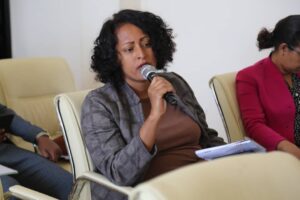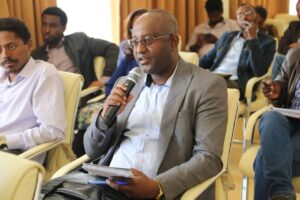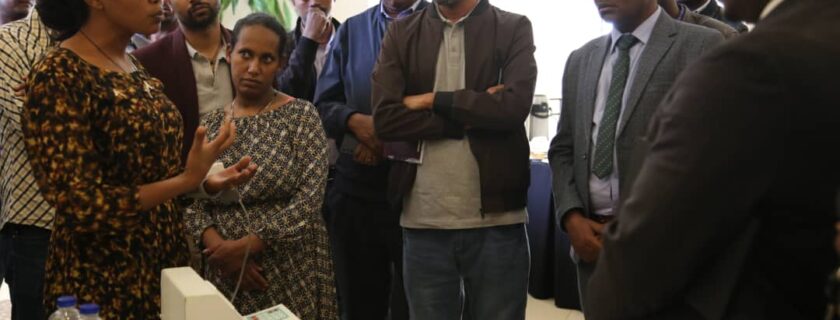The National Health Innovation Steering Committee, on February 15 at Bishoftu held their first meeting to tackle all the Grand Health Innovation challenges that hamper the real life application of health innovation within the country.
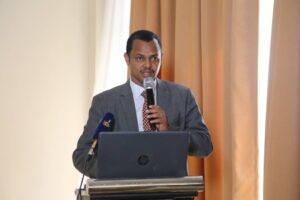
Prof. Afework Kassu, AHRI Director General, in his opening welcoming remark explained that since 2017 AHRI had hosted the Grand Challenges Ethiopia (GCE) which over the years has played a crucial role in stimulating innovations that solve health sector grand challenges. Despite its success, Prof. Afework underlined that the healthcare system in resource limited settings still does indeed face challenges in adoption of these innovations. To this end, he called on the steering committee members to take on the responsibility of unlocking the challenges as well the opportunities in nurturing the various health innovations to market.
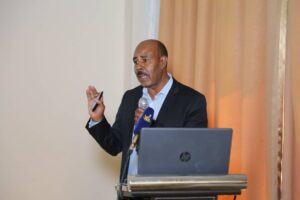
Dr. Shallo Daba, GCE Program Coordinator, in his presentation to the steering committee gave an overview outline on the; Background of GCE Initiatives, Types of innovation supported by GCE, Objectives of GCE, Funding mechanism of GCE, Eligibility Criteria for GCE and evaluation process, and Implementation progress of GCE.
While giving the back-story to the formation of the steering committee, he explained that following a high level health innovation projects visit at Jimma University led by H.E Dr. Lia Tadesse (Health Minister) and H.E Dr. Dereje Deguma (Health State Minister) and other representatives of various Institutions, with the listed points below found as bottlenecks to health innovation;
- Lack of standards for locally developed medical, diagnostic and therapeutic tools,
- No clear system in place to evaluate and approve locally developed tools in the country
- Delay in getting ethical clearance for clinical performance tests
- Lack of an established national system for mass production of locally developed tools
- Limited fund for health innovation projects
Thus, in order to alleviate the innovation constriction as Dr. Shallo explained, a direction to establish the national health innovation steering committee was set, to whom its members spanned across 19 institutions, with the core responsibilities as enlisted below;
- Create a system to solve challenges that hinders the progress of health innovation projects
- Create a system that could motivate the involvement of private sectors for mass production of the developed tools
- Motivate health innovators to play their role in solving health sector grand challenges though using exciting resources and knowledge
Following the comprehensive introduction, the steering committee members proceeded to view the various health innovations on display and had a one on one discussion with the innovators.
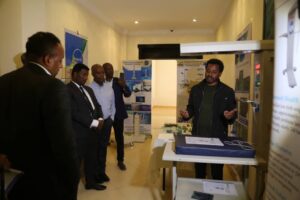
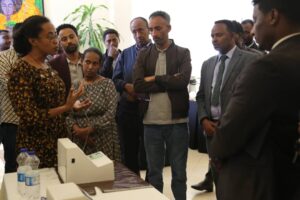
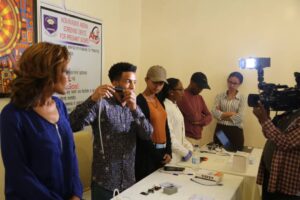
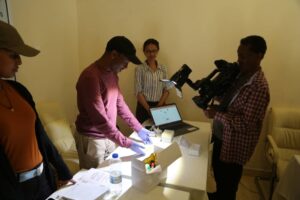
Moreover, a plenary discussion was moderated by the steering committee- secretary H.E Dr. Bayissa Bedada, State Minister of Innovation Technology Development and Management and Prof. Afework Kassu.

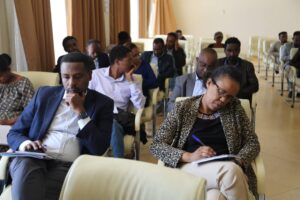
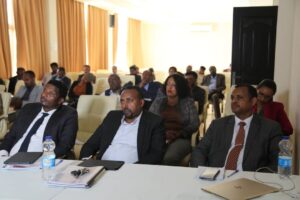
During the session the steering committee members raised discussion points pertinent to grand challenges innovation issues and looked into the synergetic roles each member institution could play to spearhead the innovations to market.
